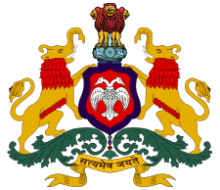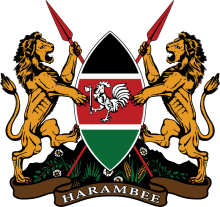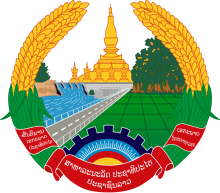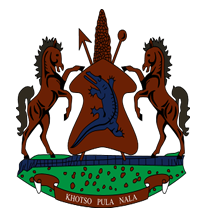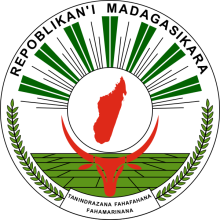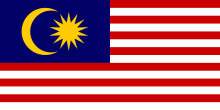La Biblioteca de la Tierra incluye recursos de más de 1.890 proveedores de información nacionales e internacionales. Aprenda más sobre las organizaciones e instituciones que utilizan el Land Portal para compartir sus investigaciones, datos e historias con acceso abierto.
Government of Ireland
Celtic tribes arrived on the island between 600 and 150 B.C. Invasions by Norsemen that began in the late 8th century were finally ended when King Brian BORU defeated the Danes in 1014. Norman invasions began in the 12th century and set off more than seven centuries of Anglo-Irish struggle marked by fierce rebellions and harsh repressions. The Irish famine of the mid-19th century saw the population of the island drop by one third through starvation and emigration. For more than a century after that the population of the island continued to fall only to begin growing again in the 1960s. Over the last 50 years, Ireland's high birthrate has made it demographically one of the youngest populations in the EU. The modern Irish state traces its origins to the failed 1916 Easter Monday Uprising that touched off several years of guerrilla warfare resulting in independence from the UK in 1921 for 26 southern counties; six northern (Ulster) counties remained part of the UK. Unresolved issues in Northern Ireland erupted into years of violence known as the "Troubles" that began in the 1960s. The Government of Ireland was part of a process along with the UK and US Governments that helped broker what is known as The Good Friday Agreement in Northern Ireland in 1998. This initiated a new phase of cooperation between the Irish and British Governments. Ireland was neutral in World War II and continues its policy of military neutrality. Ireland joined the European Community in 1973 and the euro-zone currency union in 1999. The economic boom years of the Celtic Tiger (1995-2007) saw rapid economic growth, which came to an abrupt end in 2008 with the meltdown of the Irish banking system. Today the economy is recovering, fueled by large and growing foreign direct investment, especially from US multi-nationals.
Ireland is a parliamentary republic.
Source: CIA World Factbook
Government of Israel
This is the profile for the Government of Israel
Government of Ivory Coast
The Politics of Ivory Coast takes place in a framework of a presidential representative democratic republic, whereby the President of Ivory Coast is both head of state and head of government, and of a multi-party system. Executive power is exercised by the President and the Government. Legislative power is vested in both the government and parliament.
From wikipedia article Politics of Ivory Coast
Government of Jamaica
The island - discovered by Christopher COLUMBUS in 1494 - was settled by the Spanish early in the 16th century. The native Taino, who had inhabited Jamaica for centuries, were gradually exterminated and replaced by African slaves. England seized the island in 1655 and established a plantation economy based on sugar, cocoa, and coffee. The abolition of slavery in 1834 freed a quarter million slaves, many of whom became small farmers. Jamaica gradually increased its independence from Britain. In 1958 it joined other British Caribbean colonies in forming the Federation of the West Indies. Jamaica gained full independence when it withdrew from the Federation in 1962. Deteriorating economic conditions during the 1970s led to recurrent violence as rival gangs affiliated with the major political parties evolved into powerful organized crime networks involved in international drug smuggling and money laundering. Violent crime, drug trafficking, and poverty pose significant challenges to the government today. Nonetheless, many rural and resort areas remain relatively safe and contribute substantially to the economy.
Jamaica is a parliamentary democracy under a constitutional monarchy and part of the Commonwealth realm.
Government of Japan
In 1603, after decades of civil warfare, the Tokugawa shogunate (a military-led, dynastic government) ushered in a long period of relative political stability and isolation from foreign influence. For more than two centuries this policy enabled Japan to enjoy a flowering of its indigenous culture. Japan opened its ports after signing the Treaty of Kanagawa with the US in 1854 and began to intensively modernize and industrialize. During the late 19th and early 20th centuries, Japan became a regional power that was able to defeat the forces of both China and Russia. It occupied Korea, Formosa (Taiwan), and southern Sakhalin Island. In 1931-32 Japan occupied Manchuria, and in 1937 it launched a full-scale invasion of China. Japan attacked US forces in 1941 - triggering America's entry into World War II - and soon occupied much of East and Southeast Asia. After its defeat in World War II, Japan recovered to become an economic power and an ally of the US. While the emperor retains his throne as a symbol of national unity, elected politicians hold actual decision-making power. Following three decades of unprecedented growth, Japan's economy experienced a major slowdown starting in the 1990s, but the country remains an economic power. In March 2011, Japan's strongest-ever earthquake, and an accompanying tsunami, devastated the northeast part of Honshu island, killed thousands, and damaged several nuclear power plants. The catastrophe hobbled the country's economy and its energy infrastructure, and tested its ability to deal with humanitarian disasters. Prime Minister Shinzo ABE was reelected to office in December 2012, and has since embarked on ambitious economic and security reforms to improve Japan's economy and bolster the country's international standing.
Japan is a parliamentary constitutional monarchy.
Source: CIA World Factbook
Government of Jordan
The politics of Jordan takes place in a framework of a parliamentary monarchy, whereby the Prime Minister of Jordan is head of government, and of a multi-party system. Jordan is a constitutional monarchy based on the constitution promulgated on January 8, 1952. The king exercises his power through the government he appoints which is responsible before the Parliament.
Information from wikipedia article Politics of Jordan
Government of Karnataka (India)
Karnataka is a state in southwest India with Arabian Sea coastlines. The capital, Bengaluru (formerly Bangalore), is a high-tech hub known for its shopping and nightlife. To the southwest, Mysore is home to lavish temples including Mysore Palace, former seat of the region’s maharajas. Hampi, once the medieval Vijayanagara empire’s capital, contains ruins of Hindu temples, elephant stables and a stone chariot.
The Government of Karnataka is a democratically elected body with the governor as the constitutional head. The governor who is appointed for five years appoints the chief minister and his council of ministers. Even though the governor remains the ceremonial head of the state, the day-to-day running of the government is taken care of by the chief minister and his council of ministers in whom a great amount of legislative powers are vested.
Government of Kenya
This is the overarching term for any Kenyan governmental agency, organ, or branch.
Government of Kiribati
This is the profile for the Government of Kiribati
Government of Kosovo
This is the profile for the Government of Kosovo
Government of Kuwait
This is the profile for the Government of Kuwait
Government of Kyrgyzstan
A Central Asian country of incredible natural beauty and proud nomadic traditions, most of the territory of present-day Kyrgyzstan was formally annexed to the Russian Empire in 1876. The Kyrgyz staged a major revolt against the Tsarist Empire in 1916 in which almost one-sixth of the Kyrgyz population was killed. Kyrgyzstan became a Soviet republic in 1936 and achieved independence in 1991 when the USSR dissolved. Nationwide demonstrations in the spring of 2005 resulted in the ouster of President Askar AKAEV, who had run the country since 1990. Former Prime Minister Kurmanbek BAKIEV overwhelmingly won the presidential election in the summer of 2005. Over the next few years, he manipulated the parliament to accrue new powers for the presidency. In July 2009, after months of harassment against his opponents and media critics, BAKIEV won reelection in a presidential campaign that the international community deemed flawed. In April 2010, violent protests in Bishkek led to the collapse of the BAKIEV regime and his eventual flight to Minsk, Belarus. His successor, Roza OTUNBAEVA, served as transitional president until Almazbek ATAMBAEV was inaugurated in December 2011, marking the first peaceful transfer of presidential power in independent Kyrgyzstan's history. Continuing concerns include: the trajectory of democratization, endemic corruption, poor interethnic relations, border security vulnerabilities, and potential terrorist threats.
Under the 2010 Constitution, ATAMBAEV is limited to one term, which will end in 2017. Constitutional amendments passed in a referendum in December 2016 include language that transfers some presidential powers to the prime minister. Disagreement over the constitutional amendments compelled ATAMBAEV’s ruling Social Democratic Party of Kyrgyzstan to dissolve and create a new majority coalition in the Jogorku Kengesh that excluded opposition parties critical of the amendments.
Kyrgyzstan is a parliamentary republic.
Source: CIA World Factbook
Government of Lao People's Democratic Republic
Wikipedia:
"Laos is a one-party socialist republic. It espouses Marxism and is governed by the Lao People's Revolutionary Party, in which the party leadership is dominated by military figures. The Socialist Republic of Vietnam and the Vietnam People's Army continue to have significant influence in Laos. The capital city is Vientiane. Other large cities include Luang Prabang, Savannakhet, and Pakse. The official language is Lao. Laos is a multi-ethnic country with the politically and culturally dominant Lao people making up approximately 60 percent of the population, mostly in the lowlands. Mon-Khmer groups, the Hmong, and other indigenous hill tribes, accounting for 40 percent of the population, live in the foothills and mountains."
Government of Latvia
This is the profile for the Government of Latvia
Government of Lebanon
Following World War I, France acquired a mandate over the northern portion of the former Ottoman Empire province of Syria. The French demarcated the region of Lebanon in 1920 and granted this area independence in 1943. Since independence the country has been marked by periods of political turmoil interspersed with prosperity built on its position as a regional center for finance and trade. The country's 1975-90 civil war that resulted in an estimated 120,000 fatalities, was followed by years of social and political instability. Sectarianism is a key element of Lebanese political life. Neighboring Syria has historically influenced Lebanon's foreign policy and internal policies, and its military occupied Lebanon from 1976 until 2005. The Lebanon-based Hizballah militia and Israel continued attacks and counterattacks against each other after Syria's withdrawal, and fought a brief war in 2006. Lebanon's borders with Syria and Israel remain unresolved.
Lebanon is a parliamentary republic.
Source: CIA World Factbook
Government of Lesotho
This is the classification for any and all of Lesotho's government entities and organs.
Government of Libya
This is the profile for the Government of Libya
Government of Liechtenstein
The Principality of Liechtenstein was established within the Holy Roman Empire in 1719. Occupied by both French and Russian troops during the Napoleonic Wars, it became a sovereign state in 1806 and joined the Germanic Confederation in 1815. Liechtenstein became fully independent in 1866 when the Confederation dissolved. Until the end of World War I, it was closely tied to Austria, but the economic devastation caused by that conflict forced Liechtenstein to enter into a customs and monetary union with Switzerland. Since World War II (in which Liechtenstein remained neutral), the country's low taxes have spurred outstanding economic growth. In 2000, shortcomings in banking regulatory oversight resulted in concerns about the use of financial institutions for money laundering. However, Liechtenstein implemented anti-money laundering legislation and a Mutual Legal Assistance Treaty with the US that went into effect in 2003.
Liechtenstein is a constitutional monarchy.
Source: CIA World Factbook
Government of Lithuania
Government of the Republic of Lithuania (Lithuanian: Lietuvos Respublikos Vyriausybė) is the cabinet of Lithuania, exercising executive power in the country. Among other responsibilities, it executes laws and resolutions of the parliament, the Seimas, and the decrees of the President, manages state property and, together with the President, executes the foreign policy of the country. The Government also has the right of legislative initiative, puts together the state budget and presents it to the Seimas for approval.
From wikipedia article Government of Lithuania
Government of Luxembourg
Founded in 963, Luxembourg became a grand duchy in 1815 and an independent state under the Netherlands. It lost more than half of its territory to Belgium in 1839 but gained a larger measure of autonomy. Full independence was attained in 1867. Overrun by Germany in both world wars, it ended its neutrality in 1948 when it entered into the Benelux Customs Union and when it joined NATO the following year. In 1957, Luxembourg became one of the six founding countries of the EEC (later the EU), and in 1999 it joined the euro currency area.
Luxembourg is constitutional monarchy.
Source: CIA World Factbook
Government of Madagascar
Madagascar was one of the last major landmasses on earth to be colonized by humans. The earliest settlers from present-day Indonesia arrived between A.D. 350 and 550. The island attracted Arab and Persian traders as early as the 7th century, and migrants from Africa arrived around A.D. 1000. Madagascar was a pirate stronghold during the late 17th and early 18th centuries, and served as a slave trading center into the 19th century. From the 16th to the late 19th century, a native Merina Kingdom dominated much of Madagascar. The island was conquered by the French in 1896 who made it a colony; independence was regained in 1960. During 1992-93, free presidential and National Assembly elections were held ending 17 years of single-party rule. In 1997, in the second presidential race, Didier RATSIRAKA, the leader during the 1970s and 1980s, was returned to the presidency. The 2001 presidential election was contested between the followers of Didier RATSIRAKA and Marc RAVALOMANANA, nearly causing secession of half of the country. In April 2002, the High Constitutional Court announced RAVALOMANANA the winner. RAVALOMANANA won a second term in 2006 but, following protests in 2009, handed over power to the military, which then conferred the presidency on the mayor of Antananarivo, Andry RAJOELINA, in what amounted to a coup d'etat. Following a lengthy mediation process led by the Southern African Development Community, Madagascar held UN-supported presidential and parliamentary elections in 2013. Former de facto finance minister Hery RAJAONARIMAMPIANINA won a runoff election in December 2013 and was inaugurated in January 2014.
Madagascar is a semi-presidential republic.
Source: CIA World Factbook
Government of Maharashtra
Maharashtra is a state in the western region of India and is India's second-most populous state and third-largest state by area. Spread over 307,713 km2 (118,809 sq mi), it is bordered by the Arabian Sea to the west and the Indian states of Karnataka, Telangana, Goa, Gujarat, Chhattisgarh, Madhya Pradesh and the Union territory of Dadra and Nagar Haveli. It is also the world's second-most populous subnational entity. It has over 112 million inhabitants and its capital, Mumbai, has a population of approximately 18 million. Nagpur is Maharashtra's second capital as well as its winter capital[6][7] while Pune is regarded as its Cultural Capital.
Maharashtra is the wealthiest state by all major economic parameters and also the most industrialized state in India. The state contributes about 25% of the country's industrial output and 23.2% of its GDP (2010–11).[8] As of 2011, the state had a per capita income of ₹100,350 (US$1,600), more than the national average of ₹73,000 (US$1,100). Its GDP per capita crossed the ₹120,000(US$1,900) threshold for the first time in 2013, making it one of the richest states in India. However, as of 2014, the GDP per capita reduced to ₹103,000 (US$1,600).[9]
Mumbai has been the capital of Maharashtra since the day it was formed.The major rivers of the state are Godavari, and Krishna. The Narmada and Tapti Rivers flow near the border between Maharashtra and Madhya Pradesh and Gujarat. Maharashtra is the third most urbanised state among major states in India.[10][11] Ancient and medieval Maharashtra was ruled by the Satavahana dynasty, Rashtrakuta dynasty, Western Chalukyas, Deccan sultanates, Mughals and Marathas respectively. Ruins, monuments, tombs, forts and places of worship left by these rulers are dotted around the state. They include the world heritage sites of Ajanta caves and Ellora caves. There are also numerous forts associated with the life of Shivaji Maharaj.
Government of Malawi
Wikipedia:
"Under the 1995 constitution, the president, who is both chief of state and head of the government, is chosen through universal direct suffrage every 5 years. Malawi has a vice president who is elected with the president. The president has the option of appointing a second vice president, who must be from a different party. It also includes a presidentially appointed cabinet. The members of the cabinet of Malawi can be drawn from either within or outside of the legislature."
Government of Malaysia
This profile is for every governmental institutions of Republic of Malaysia.
Government of Mali
The Sudanese Republic and Senegal became independent of France in 1960 as the Mali Federation. When Senegal withdrew after only a few months, what formerly made up the Sudanese Republic was renamed Mali. Rule by dictatorship was brought to a close in 1991 by a military coup that ushered in a period of democratic rule. President Alpha KONARE won Mali's first two democratic presidential elections in 1992 and 1997. In keeping with Mali's two-term constitutional limit, he stepped down in 2002 and was succeeded by Amadou Toumani TOURE, who was elected to a second term in a 2007 election that was widely judged to be free and fair. Malian returnees from Libya in 2011 exacerbated tensions in northern Mali, and Tuareg ethnic militias rebelled in January 2012. Low- and mid-level soldiers, frustrated with the poor handling of the rebellion, overthrew TOURE on 22 March. Intensive mediation efforts led by the Economic Community of West African States (ECOWAS) returned power to a civilian administration in April with the appointment of Interim President Dioncounda TRAORE. The post-coup chaos led to rebels expelling the Malian military from the country's three northern regions and allowed Islamic militants to set up strongholds. Hundreds of thousands of northern Malians fled the violence to southern Mali and neighboring countries, exacerbating regional food shortages in host communities. An international military intervention to retake the three northern regions began in January 2013 and within a month most of the north had been retaken. In a democratic presidential election conducted in July and August of 2013, Ibrahim Boubacar KEITA was elected president. The Malian Government and northern armed groups signed an internationally-mediated peace accord in June 2015.
Mali is a semi-presidential republic.
Source: CIA World Factbook
Government of Malta
Great Britain formally acquired Malta in 1814. The island staunchly supported the UK through both world wars and remained in the Commonwealth when it became independent in 1964; a decade later it declared itself a republic. Since about the mid-1980s, the island has transformed itself into a freight transshipment point, a financial center, and a tourist destination while its key industries moved toward more service-oriented activities. Malta became an EU member in May 2004 and began using the euro as currency in 2008.
Malta is a parliamentary republic.
Source: CIA World Factbook
Government of Marshall Islands
This is the profile for the Government of Marshall Islands
Government of Mauritania
This is the profile for the Government of Mauritania
Government of Mauritius
Although known to Arab and Malay sailors as early as the 10th century, Mauritius was first explored by the Portuguese in the 16th century and subsequently settled by the Dutch - who named it in honor of Prince Maurits van NASSAU - in the 17th century. The French assumed control in 1715, developing the island into an important naval base overseeing Indian Ocean trade, and establishing a plantation economy of sugar cane. The British captured the island in 1810, during the Napoleonic Wars. Mauritius remained a strategically important British naval base, and later an air station, playing an important role during World War II for anti-submarine and convoy operations, as well as the collection of signals intelligence. Independence from the UK was attained in 1968. A stable democracy with regular free elections and a positive human rights record, the country has attracted considerable foreign investment and has one of Africa's highest per capita incomes.
Mauritius is a parliamentary republic.
Source: CIA World Factbook







